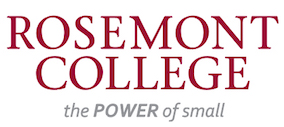A Mobile Therapist's Stability
Joe Darrah - October 14, 2020
 When she decided to enroll in a general psychopathology course as an undergrad biology
major, Alica Boleware, MA, thought she was taking the easy way out. Opting for that
particular class only to pair it with organic chemistry, a class she was taking at
the time for what she ultimately saw as a path toward medical school, Boleware saw
the two courses lending themselves to each other’s syllabi. She would get through
those two classes, more successfully, together, she assumed.
When she decided to enroll in a general psychopathology course as an undergrad biology
major, Alica Boleware, MA, thought she was taking the easy way out. Opting for that
particular class only to pair it with organic chemistry, a class she was taking at
the time for what she ultimately saw as a path toward medical school, Boleware saw
the two courses lending themselves to each other’s syllabi. She would get through
those two classes, more successfully, together, she assumed.
But the first-generation student, for whom there would be many aspects of the collegiate experience that she would have to learn primarily based on her intuition, was about to learn one of the most valuable lessons that she relishes to this day as a professional behavioral health specialist and mobile therapist — that the tandem of classes would help her to realize what she didn’t want to do with her career and her life. Ergo, chemistry and its related branch of science were not for her.
“At one point I thought that I wanted to go to medical school like my younger sister, because I could see the passion she had for it in her eyes, but it wasn’t the calling for me,” said Boleware, who earned her master’s degree in clinical psychology from Rosemont in 2019 and today works for a community-based behavioral health agency and primarily works with young children and adolescents who are experiencing emotional and behavioral health problems. “And psychopathology ended up being the class that I never missed. I thoroughly enjoyed the lectures immediately. And, so that natural interest led me through a series of steps that saw me change my major.”
The Many of 'Firsts'
Not only was Boleware the first in her family to go to college, she was the first
to receive a formal education and to be born in the United States. The inherent challenges
afforded her a certain perspective throughout her life that allowed her to always
trust her instincts first. As an undergraduate student at Temple University, she switched
majors on her own judgmental good authority and began seeking real-life experiences
to validate the level of interest she was feeling — with the backdrop always being
that from a young age she always had a sense of wanting to work as a clinician and
to be able to help others in need.
“And once I became a psychology major, I knew this was the filed I wanted to be in,”
she said. “I knew that I wanted one-on-one experience of working with kids. I knew
that I wasn’t interested in research or sitting in a lab. I wanted to be in the field.”
By the time she enrolled at Rosemont, Boleware was employed as a secretary for Active Minds, a non-profit organization based in Washington, DC, that aims to prevent suicide by supporting mental health awareness and education for young adults. “My academic advisor at the time suggested that I enroll at Rosemont because of the reputation of the College’s graduate counseling program,” she said. “And when I visited, I liked the idea of the attention that I would get at a smaller school.” During her time at Rosemont, she typically worked mornings and saw the benefits of experiencing varied situations while working with clients and bringing those experiences into the classroom to support her education and vice versa.
“So, when I went to class, I was read and learning about specific interventions that
worked best with different diagnoses that I was seeing at work. And I’d go back to
my supervisors to talk about different approaches to try with our clients,” says Boleware.
“I was always able to take that real-life experience and take that knowledge from
the classroom, and work them together at the same time. And that was a great experience
because I was able to bounce the knowledge off of others in school and at work.”
Before long, she learned that many of her classmates worked as Therapeutic Support
Staff (TSS), and when the same opportunity presented itself, Boleware took it. In
that role, she worked in the community-based environment assisting staff with implementing
treatment plans, including those for adults, which would lead to another personal
teaching moment. “It was a great experience, but my passion was working with children,”
she said. “And so having the opportunity of working with adults gave me better direction
towards what my next steps would be.”
The Mobile Therapist
Those steps have led Boleware to a career in mobile therapy, which actually existed prior to the pandemic and is not quite what it sounds like given the lingo we have all become accustomed to. Mobile therapists traditionally visit clients in their space (the human is mobile) in an attempt to help individuals navigate challenges within the environments that may prove challenging. Boleware’s expertise is with clients ages 3-18 who experience issues with impulse control, focus, anger management, coping skills, anxiety-related symptoms, somatic issues, trauma, and grief/loss.
“When you’re in the clinical outpatient setting, you are getting only the client’s
perspective,” Boleware explained. “When you are in the mobile therapy setting, you’re
in their situation with them. So you get more information and more perspective. Especially
when working with kids, because there’s a limited understanding as to what they’re
feeling or why they’re behaving in a certain way. If you only rely on that information
you’ll have a limited perspective on that situation. So mobile therapy provides you
with full access and allows you to be creative when using evidence-based theory and
practices, and implementing them in an individual or family setting.”
Of course, the current pandemic has affected the way that the mobile therapist can
operate. But there are always technological mobile alternatives. Today, that translates
into counselors and therapists utilizing tele-health tools to connect with clients
within the same environments that a mobile therapist would otherwise be visiting.
“As a therapist, you can’t go into the community and say ‘be this person’s friend,’ but you can encourage the client to focus on the relationships that they have with their siblings and mimic the behaviors and the emotions that you would experience with the non-family member,” Boleware said. “The behaviors are the same, it’s just the relationships that are different.” The use of mobile technology today also aids those clients who are facing complications that are a direct result of the pandemic and the isolation that they may be feeling for various reasons.
“The biggest impact that these children are having now is, if they’re not able to
see their friends or participate in whatever groups or teams they belong to – they’re
limited in their social connections, and that can lead to mental health challenges,”
Boleware said. “But children and adolescents are learning to redefine that by building
relationships with their siblings or family members. And parents who may have once
found refuge in the work space who are now no longer able to go into the office might
be craving virtual book clubs or finding their own space in the house to self-regulate
or mediate to find that refuge again. It’s about finding ways to socially connect
when we’re limited while also utilizing coping skills to find your own sense of calm
if you live with others.”
There are limitations to technology that must be navigated, however.
“Via tele-health, you’re limited when it comes to recognizing non-verbal communication, so you’re learning to train yourself in new ways for this ‘new’ environment,” Boleware said. “You might find yourself re-scripting your treatment goals.” For example, perhaps a client is no longer experiencing anger issues because the trigger may have been in the community. This may call attention to the need to role-play with family to discuss the root of any issues.
Therapy for the Therapist
There are many overlapping symptoms that occur among many of the children whom Boleware sees as clients, but the typical primary concern is trying to build independence and autonomy, she said.
“We want patients and children to understand that, despite what they’re currently going through, they have the capabilities of being able to utilize the appropriate skills in order to be their highest self,” she said. “So we try to push them and their parents to achieve that.
It’s not unlike the type of guidance that Boleware said she needed as a college student, even if she was always lucky enough to be able to lean on her own instincts.
“I wouldn’t have know that behavioral health was where I wanted to be, if I did not have the mentors I’ve had,” she said. “Every mentor I’ve had, especially the ones at Rosemont, provided me with unbiased opinions about what my next steps could be and should be. That’s honestly a lot like therapy. I always felt very supported and safe. The ‘Power of Small’ is true. And I’m very grateful to have had that.” In particular, Boleware recounts a class she had with Thomas DeGeorge, assistant professor of counseling, during which internship experience was discussed.
“He could listen to my opinions in an in-depth way that you might not be able to do in a class of 50,” she said. “Through those conversations, and through that mentorship that I built with Dr. DeGeorge, I felt seen, heard, and understood. And by the common difficulties and triumphs that you experience in this field, I felt very supported when it came to learning in the small classrooms that Rosemont provides. It all comes back to building relationships with your classmates and teachers, because they have relative knowledge in the field and the experience to be able to help you determine if you might be happy working in certain settings.”
She draws on these experiences to this day, she said, especially from the standpoint of being able to offer and promote evidence-based practice — an important component to any healthcare field today.
“There is a push for evidence-based treatment and current regulatory agencies have updated their polices to support that services and therapy being provided by counselors are evidence-based and outcomes driven, and that individuals are well-trained,” she said. “Evidence-based means that the therapist is using interventions that are empirically proven to address someone’s concerns. And this is important because, I think when most people think about the idea of receiving therapy or counseling, they question whether or not it is really going to work. But the questions that we want people to ask themselves is, what are the evidence-based approaches that the therapist is utilizing, and are they solutions-focused?”
She hopes that today’s students are learning that lesson early and are often seeing the impact of education being applied in the same manner that she was afforded outside the classroom. She said the industry needs professionals who will want to make change by initiating evidence-based solutions for a client base that they feel strongly connected to caring for.
“If you identify with a specialty in this field, go for it,” she said. “You want to develop an understanding about the population that you’re willing to work with and the clinical setting that you find is the best fit for you. Once you do that, and you know that you want to be an agent of change, then you are exactly what we need. It just becomes about finding where you want to be placed.”
